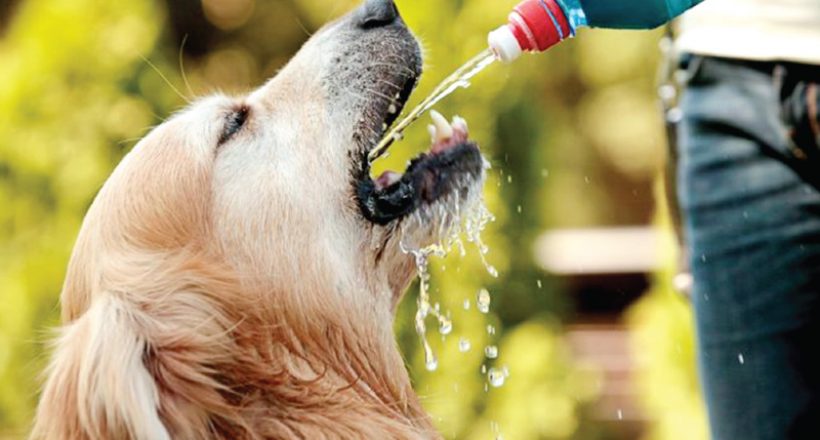
Pet Care: Urinary tract infection in dogs and cats – Renal Illness
- AUG 04, 2018Warning: count(): Parameter must be an array or an object that implements Countable in /home/howlermag/public_html/old/wp-content/themes/new-paper/includes/general.php on line 193

Your Lead Paragrpah goes here
Pet Care: Urinary tract infection in dogs and cats – Renal Illness: Urinary infections are a common malady seen in our veterinary practice, occurring equally in dogs and cats, male or female. Symptoms generally reported include presence of blood in urine (hematuria), interrupted and weak flow of urine (stranguria), urinating in inappropriate places, perineal licking, and increased frequency and volume of urination.
Urinary tract infection in dogs and Cats:
We recommend giving your pet filtered,
bottled or boiled water to drink.
Any of these symptoms should be reported as soon as possible to your veterinarian for appropriate tests, such as hemogram, urine analysis, biochemistry ultrasound and x-rays.
There are many possible causes of renal illness in pets, including infectious or chemical agents, metabolic factors, diet, anatomic anomalies, neoplasias (tumors) and urinary tract compression. In any of these instances, the type of water consumed by your pet can also be an important factor. Typically, tap water in this area of Costa Rica is rich in minerals, and some pets may drink ocean or pool water. Diets high in salt can also affect urinary health.
A significant concern in our practice is the number of male canine and feline patients with partial or total urethral obstruction. Some of these dogs and cats have not urinated for days, and yet are not taken to the vet until they are vomiting due to inflammation or even a ruptured bladder. These are emergency cases that require immediate treatment; no mammal can survive without urinating.
In female patients, permanent incontinence can be an outcome when even simple urinary infections are left untreated. Some medicines can have dangerous side effects, such as tumors or even death. Veterinarians have the responsibility to inform owners of these risks and only supply such medications when absolutely necessary.
As a precaution to minimize the risk of renal stone formation, we recommend giving your pet filtered, bottled or boiled water to drink. In this geographic region, a preventive urine test every six months is also advisable. As your pet ages, we suggest biochemical tests be done periodically during veterinary visits to assess renal condition. If problems are detected early enough, especially in animals with a predisposition for renal disease, a special diet can make an important difference in longevity and quality of life.
More great HOWLER Pet Care Articles
Pet Cancer and Chemotherapy
Wildlife: An Extraordinary Case of Caring
Blood Transfusions for cats and dogs
Pets get STD’s too
What to Expect from a Costa Rica Vet Visit
Pet Traveling: Happy Landings for your Pet
What to Expect when you pet is expecting
Preparing your pets for raining season
Pet Care: Water Health and Safety
Tick Fever or Ehrlichiosis
Spay or Neuter Pets
Snake Bites: A common pet emergency in Costa Rica









